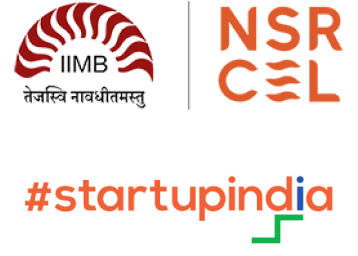Hiring the right person for the job has always been a difficult task. This is because the decisions are made regarding people, rather than things where a simple cost-benefit analysis can often clear things up. To complicate matters, the number of competing applicants greatly outweighs the number of job openings, especially in India.
The traditional way of hiring by sourcing applications, going through multiple rounds of filtering and interviewing to select the right candidate is, and has always been a money-burning and time-consuming process. Our research suggests that the direct and indirect costs of hiring mechanical engineers the traditional way cost up to several tens of thousands of rupees. This proves to be especially crucial in a start-up environment where the value of time is way too high to spend on shortlisting candidates.
The least expensive part of the traditional process is the applicant sourcing part. It is quite cheap, and some sites even offer a decent service free of cost, whereas some sites like LinkedIn charge some money. But the real costs start to kick in in the next processes in hiring.
When a high-positioned employee, recruiter, or even the founder himself/herself looks through the CVs to shortlist candidates, they spend a lot of money in wasted time. Based on our data, we found the resume readers to take approximately a couple of minutes to review a profile. It doesn’t sound like much, but it adds up pretty fast, especially since the very high applicants to openings ratio in our country.
As discussed in detail in a previous article, CV screening is neither efficient nor effective. Because of that the costs for this phase are not just that of the time spent looking at the resumes, but must also include the opportunity cost of missing out on better candidates. Based on our research from HRs and Founders, we have calculated that this phase will cost you thousands of rupees.
The next phase is usually conducting a technical/aptitude test. But here comes the big problem. The professional most of test vendors are prohibitively expensive since they offer tests that are both private and proctored.
The other direction is to send out assignments to candidates for them to solve. While there are significant costs in setting the questions and correcting the answers, that’s not it. The bigger issue with this model is that you cannot find the candidates who cheated on the tests before an interview. So the costs don’t just include the time you will be spending on a few bad interviews, but also the opportunity cost of missing out on good candidates who should not have been rejected. And then comes the costs of interviewing the final candidates, deliberating, and hiring.
From our market research, we were able to calculate the approximate costs, and they are absurd high – in tens of thousands of rupees. If you want to continue talking about the probable costs of mishires and the opportunity cost of missing out on a better candidate, it takes to the overall cost to a whole different planet.
But ignore the costs. The bigger problem is missing out on a good candidate. This is a problem worth solving, and you can do that with Merreo. Using Merreo pre-hiring tests in the first phase of your screening process will not just reduce your direct and indirect hiring costs, but also improve your hiring practices overall.
Merreo pre-hiring tests have an ever-expanding library of over 45+ pre-employment tests that range from cognitive skills to marketing skills, to programming skills, and more. Sign up for free, avail 10 free credits, and start reinventing your hiring process.





